15+ Best Small Business Apps to Simplify Your Work in 2026
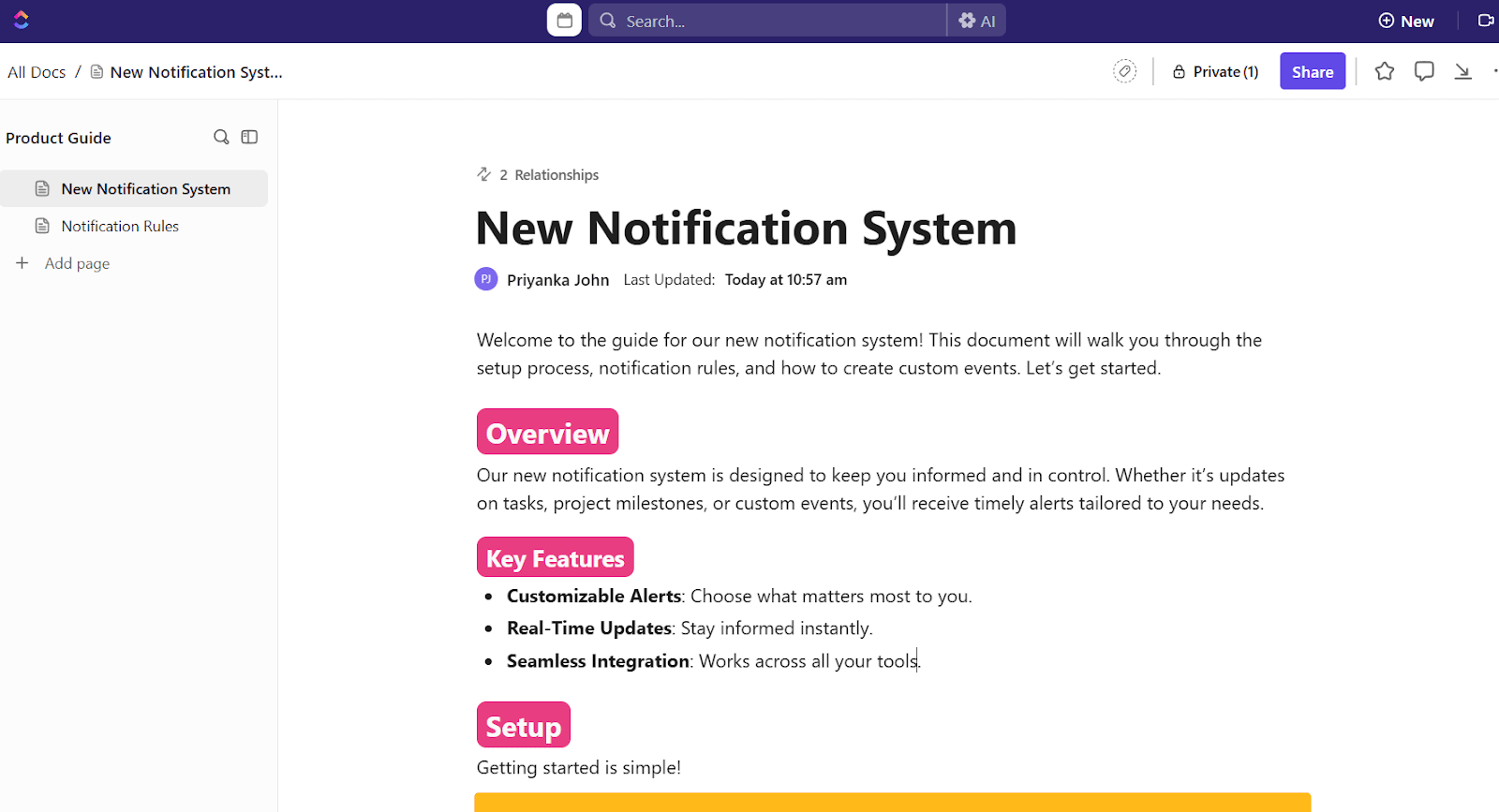
Sorry, there were no results found for “”
Sorry, there were no results found for “”
Sorry, there were no results found for “”

Small businesses move fast. You close deals, ship products, and solve problems while bigger companies are still scheduling meetings about scheduling meetings.
But speed means nothing if you’re using the wrong tools. The best apps for small businesses make work easier, faster, and more profitable. 📈
Here are the small business apps that deliver on this promise.
Here’s a quick comparison of the top small business apps. 📊
| Tool | Best for | Best features | Pricing |
|---|---|---|---|
| ClickUp | Project management and collaboration Team size: Suitable for all business sizes | AI-powered task management, docs, time tracking, automations, CRM, dashboards, chat, templates | Free forever; Customizations available for enterprises |
| Zoom | Remote team meetings and webinars Team size: Ideal for distributed teams and client calls | HD video, breakout rooms, screen sharing, meeting recordings | Free; Starts at $15.99/month per user |
| Square | Mobile point-of-sale and payments Team size: Ideal for retail and small restaurant businesses | POS, inventory, invoice creation, sales analytics | Free; Starts at $29/month (+ processing fees) |
| QuickBooks | Small business accounting and bookkeeping Team size: Ideal for solo entrepreneurs to mid-sized firms | Invoicing, bank sync, expense tracking, cash flow reports | Starts at $19/month |
| Expensify | Automated expense management Team size: Ideal for field teams, finance teams, and frequent travelers | SmartScan receipts, reimbursements, approval workflows | Starts at $5/month per user |
| BambooHR | Employee information and HR management Team size: Ideal for growing teams with HR needs | Employee self-service, time-off tracking, onboarding tools | Custom pricing |
| WordPress | Flexible website creation Team size: Ideal for SMBs needing custom websites | Custom themes, plugin ecosystem, SEO tools | Free; Paid plans start at $9/month |
| Wix | Visual drag-and-drop website building Team size: Ideal for founders and creatives | AI site builder, templates, e-commerce tools | Free; Paid plans start at $17/month |
| Canva | Quick graphic design Team size: Ideal for marketing, social media, and internal design needs | Templates, brand kit, Magic Resize, collaboration | Free; Paid plans start at $15/month per user |
| Sortly | Visual inventory tracking Team size: Ideal for product-based SMBs and service ops | Photo-based inventory, barcode scanning, alerts | Free; Paid plans start at $49/month |
| Google Analytics | Website traffic and user insights Team size: Ideal for businesses with online presence | Traffic sources, engagement, conversions, dashboards | Free |
| Wave | Budget-conscious accounting Team size: Ideal for freelancers and small service providers | Bank sync, receipt scanning, invoicing, reporting | Free; Paid plan at $16/month |
| Hootsuite | Social media scheduling and insights Team size: Ideal for marketing teams and agencies | Scheduling, analytics, brand monitoring, integrations | Starts at $149/month |
| Grammarly Business | Professional writing and tone consistency Team size: Ideal for distributed and content-heavy teams | Grammar suggestions, brand tone, plagiarism detection | Free; Paid plans start at $30/month per user |
| Calendly | Appointment and meeting scheduling Team size: Ideal for client-facing teams and solo professionals | Time zone syncing, calendar integration, reminders | Free; Paid plans start at $12/month per user |
| TripIt | Travel itinerary management Team size: Ideal for travel-heavy roles or consultants | Real-time flight alerts, auto-itinerary from emails | Free; TripIt Pro at $49/year |
| Mailchimp | Email marketing campaigns Team size: Ideal for SMBs with e-commerce or newsletter needs | Automation, segmentation, templates, analytics | Free; Paid plans start at $13/month |
Running a small business is a hustle, and the right apps can lighten the load. Here’s what to prioritize to boost efficiency and growth:
🔍 Did You Know? Micro, small, and medium enterprises (MSMEs) are the backbone of economies across the globe. They make up over 90% of all businesses, contribute around half of the total value added, and generate more than two-thirds of business employment.
These are our picks for the best small business apps. 📋
Our editorial team follows a transparent, research-backed, and vendor-neutral process, so you can trust that our recommendations are based on real product value.
Here’s a detailed rundown of how we review software at ClickUp.
Most small teams deal with the same problem: too many tools, not enough time.
ClickUp keeps it simple. It’s the everything app for work, built to replace your scattered stack into a Converged AI Workspace so your team can get things done.
ClickUp gives you the full project management toolkit—powered by AI and built for small teams.
Small teams often work on instinct, but that only goes so far. ClickUp Tasks help you lay out every project step-by-step. You can assign owners, set due dates, and track progress.
Then, use ClickUp Custom Fields to tailor tasks to how you work—add fields like client name, content type, or review stage. And with ClickUp Task Priorities, your team knows what to tackle first.
Example: Running a client newsletter? Create tasks for drafting, design, and approval. Add a Custom Field for the client name (“Maple & Co.”), tag the content type, set the priority, and everyone knows exactly what’s next—no chasing updates.
It’s hard to scale if you don’t know where your team’s time is going.
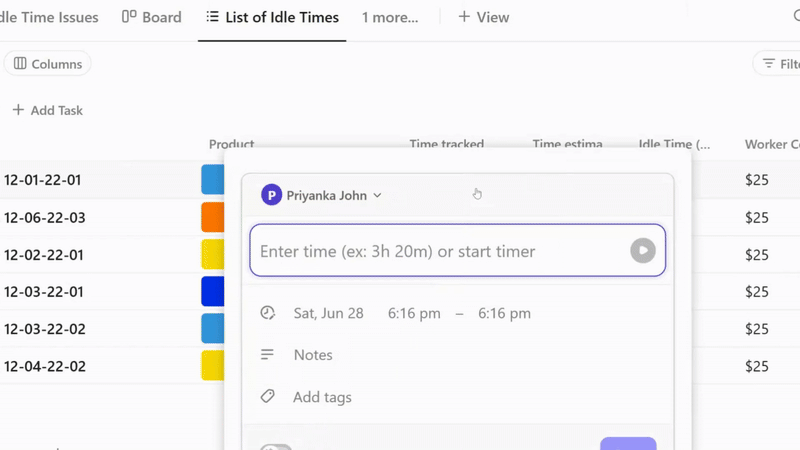
With ClickUp Project Time Tracking, you can log time directly in the task (manually or with a timer) and then sort it by person, client, or project.
Say you run a branding studio. If you’re consistently spending 14 hours on logo concepts when you only scoped for 10, that’s a problem. The project management software for small businesses helps catch those patterns early and adjust before they affect your margins.
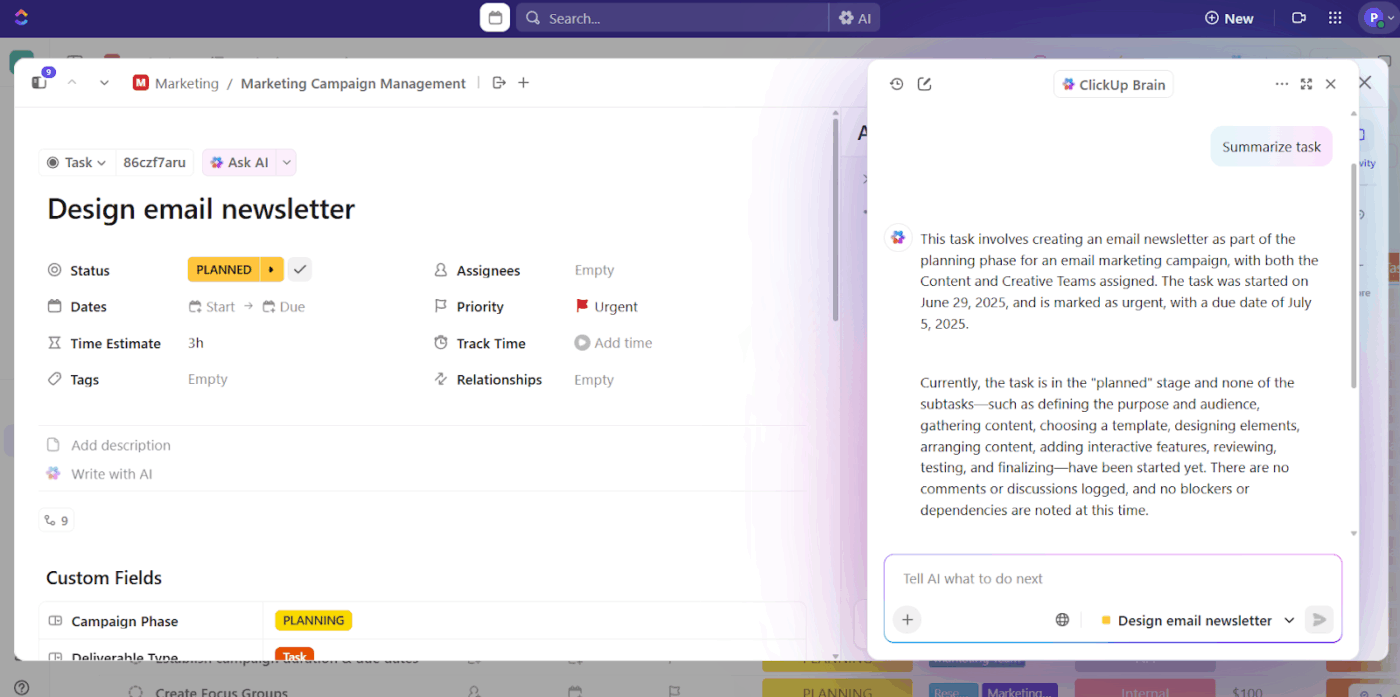
ClickUp Brain lets you switch between multiple AI models, such as Claude, OpenAI, and Gemini, in one space, so you get the power of all three without the extra subscriptions.
If you’re working across devices, ClickUp Brain MAX brings the same AI power to your desktop—complete with Talk-to-Text for hands-free note-taking, task creation, or idea capture. Imagine dictating your next client brief or campaign update, and ClickUp instantly turns it into a formatted Doc or Task. No context lost, no typing needed.
For busy founders and teams juggling calls, meetings, and deliverables, this keeps creativity and documentation flowing—without breaking focus.
Want to consolidate tools and set your small business up for success in 2026? Check out our step by step playbook
Processes, SOPs, and notes shouldn’t live in random folders. ClickUp Docs keeps everything organized and easy to use.
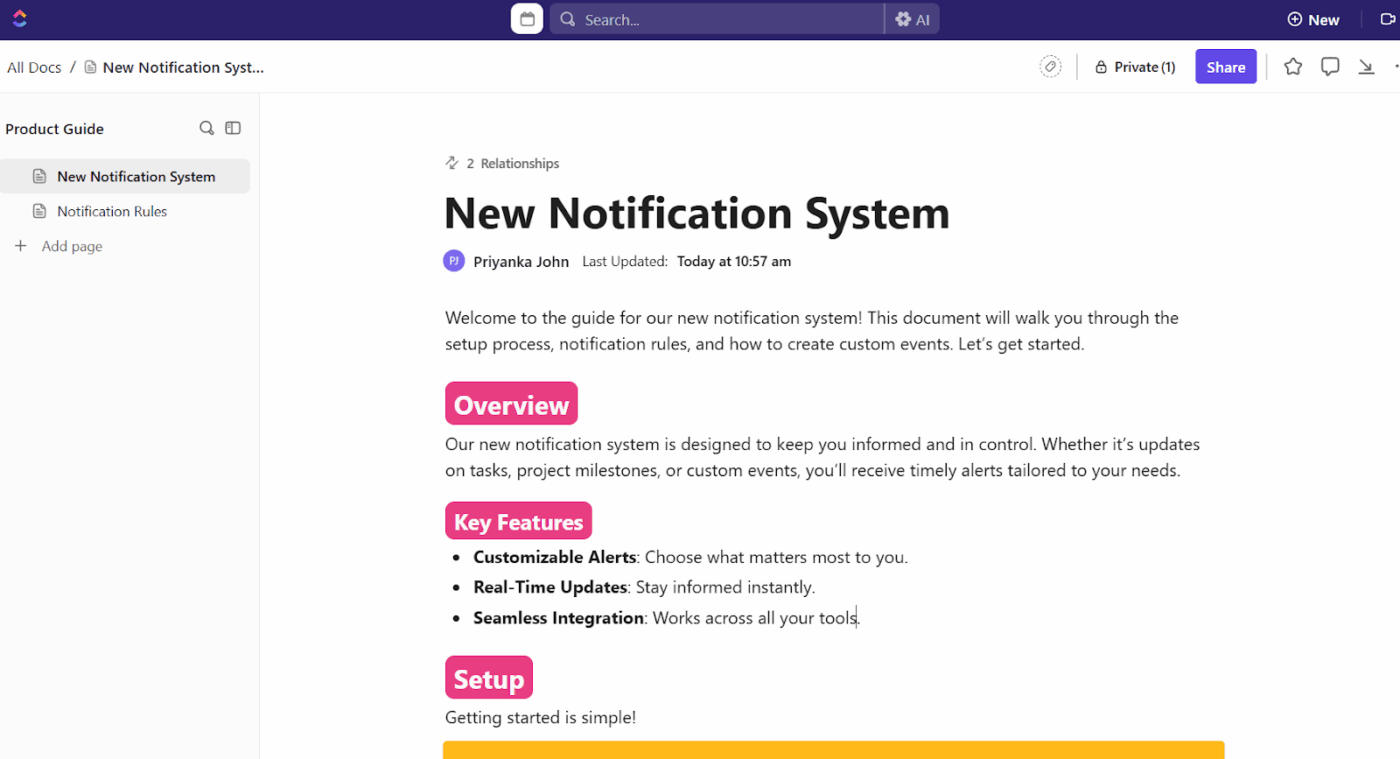
You can draft documents, link them to tasks, assign action items, and keep everything connected to the work—not lost in a separate tool. And if you’re starting from scratch, ClickUp Brain can help you create content faster.
For example, a training lead creating a new onboarding guide uses ClickUp Brain to generate the first draft based on tagged tasks and existing docs.
Messages don’t get lost when they live inside the work. In ClickUp, chat threads stay attached to the task, doc, or client project, so decisions don’t disappear into 9 different apps.
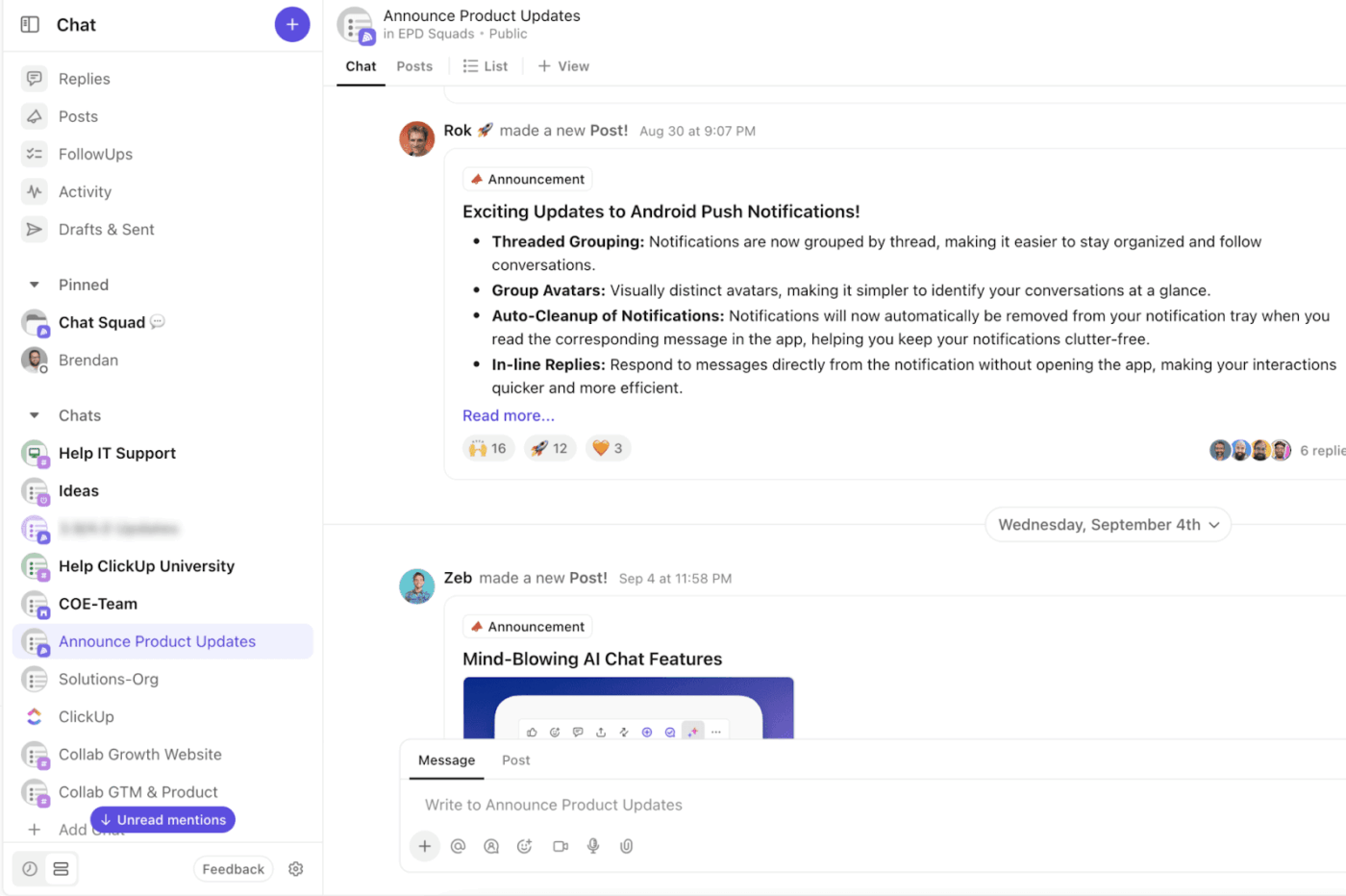
ClickUp Chat keeps your conversations connected to the task or project they’re about. Create channels for each List and turn key messages into Tasks so nothing gets missed.
For instance, if your customer support team spots a trend in refund requests, they can drop it into the client chat thread, tag finance and product, and spin it into a task for next week’s review.
Per a G2 review from a small business owner:
ClickUp offers an impressive range of features that make it easy to customize workflows, manage tasks, and track progress in one place. I love how I can create views tailored to each project, set automations, and integrate it with other tools I already use. It’s very versatile, whether for personal task tracking or complex business operations. The templates and dashboards are especially helpful for keeping everything organized and easy to follow.
🧠 Fun Fact: The Small Business Administration was created in 1953 to fund businesses and defend them legally. Its original mandate included helping small firms win government contracts against larger competitors.

via Zoom
Remember when video calls meant pixelated faces and ‘can you hear me now?’ moments? Zoom changed that completely.
The interface feels intuitive enough that even your most tech-averse team member can join without a crisis. And well, what sets this small business collaboration app apart is how it handles interruptions gracefully. When someone’s connection drops, they can rejoin seamlessly without disrupting the entire meeting flow.
According to a G2 review:
Honestly, what I love most about Zoom Workplace is how easy it makes everything. I don’t have to stress about figuring things out, it just works. Whether I’m hopping on a quick call, sharing my screen, or using the chat to keep up with teammates, it all feels really smooth and natural. I also like that it doesn’t get glitchy, even when my Wi-Fi isn’t perfect. Did I mention the breakout rooms? The breakout rooms are an absolute game-changer for group work. It just makes staying connected with people feel simple and effortless.
📮 ClickUp Insight: 31% of managers prefer visual boards, while others rely on Gantt charts, dashboards, or resource views.
But most tools force you to pick one. If the view doesn’t match the way you think, it just becomes another layer of friction.
With ClickUp, you don’t have to choose. Switch between AI-powered Gantt charts, Kanban Boards, Dashboards, or Workload View in a single click. And with ClickUp AI, you can auto-generate tailored views or summaries based on who’s looking—whether it’s you, an exec, or your designer.
💫 Real Results: CEMEX sped up product launches by 15% and cut communication delays from 24 hours to seconds using ClickUp.

via Square
Your smartphone just became a cash register, and Square made it happen. This payment system turns any mobile device into a point-of-sale terminal, perfect for businesses that need to accept payments anywhere.
The little white card reader might look simple, but it’s designed to handle the chaos of real-world transactions. Square also eliminates the traditional headaches of merchant accounts and complicated fee structures by keeping everything transparent and straightforward.
From a G2 review:
It’s user-friendly even for non-tech-savvy users in our team, with great features that make processing payments, managing inventories, and handling customer transactions seamless both online and offline. […] I think the only problem with Square is the high transaction costs. Since we use this software very frequently the charges do add up
💡 Pro Tip: Consider small business apps that play well with others. A fancy app that doesn’t integrate with your accounting tool, CRM, or email platform will cause more headaches than it solves. Look for native integrations or support for Zapier/Make.
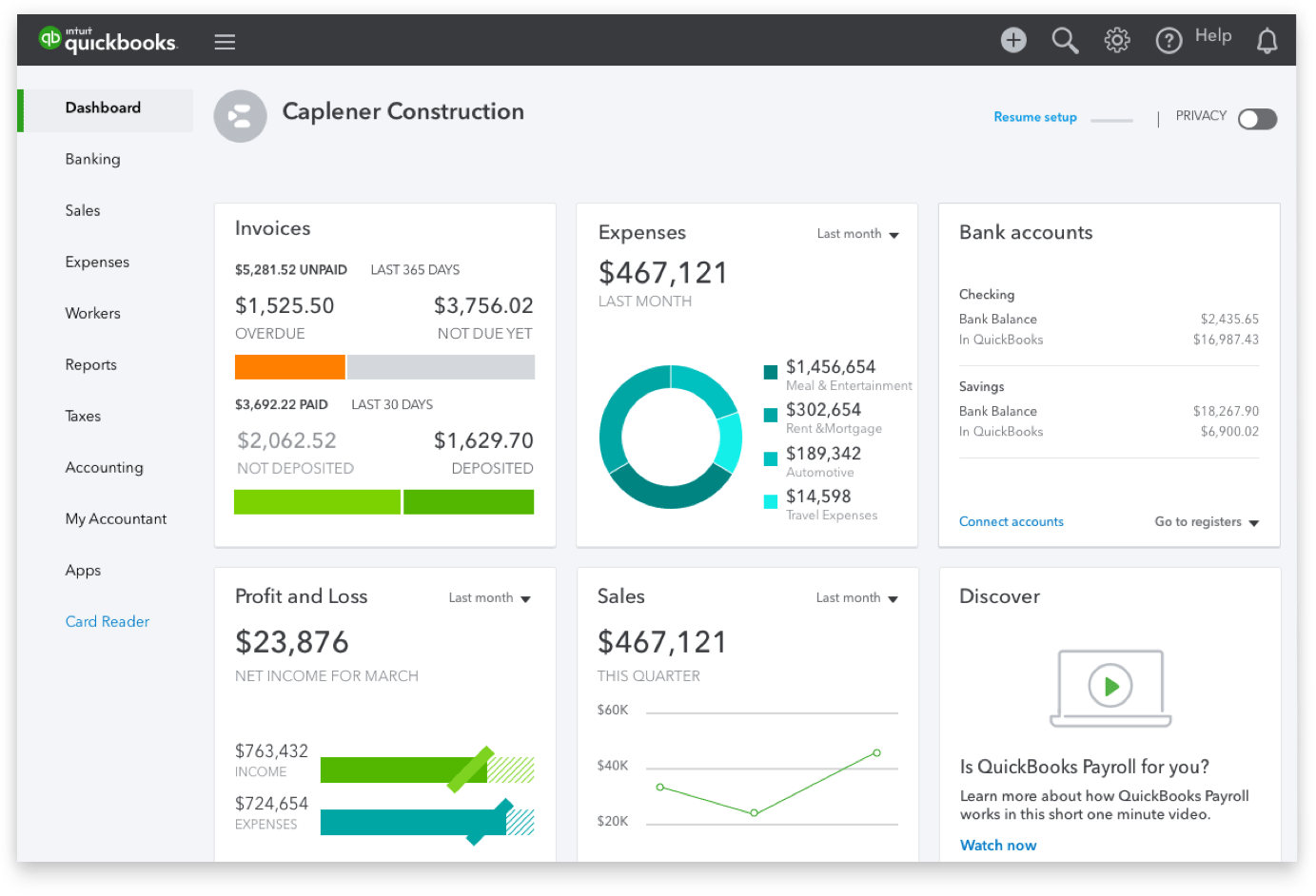
via QuickBooks
QuickBooks became the go-to choice for small businesses because it strikes the right balance between powerful features and usability.
With this app, you can send professional invoices, track who’s paid you (and who hasn’t), and keep an eye on your expenses. It connects to your bank accounts, so your transactions show up automatically, saving you time on manual entry. You’ll also get easy-to-read reports to get a clear picture of your financial health without drowning you in technical jargon.
A G2 review states:
What I like best about Intuit QuickBooks is its very user-friendly interface and helpful features, which simplify accounting for small businesses. It gives you a great look on invoicing, expense tracking, and tax calculations, making financial management in lesser time and very efficient matter.
📖 Also Read: Best Affordable Small Business Database Software
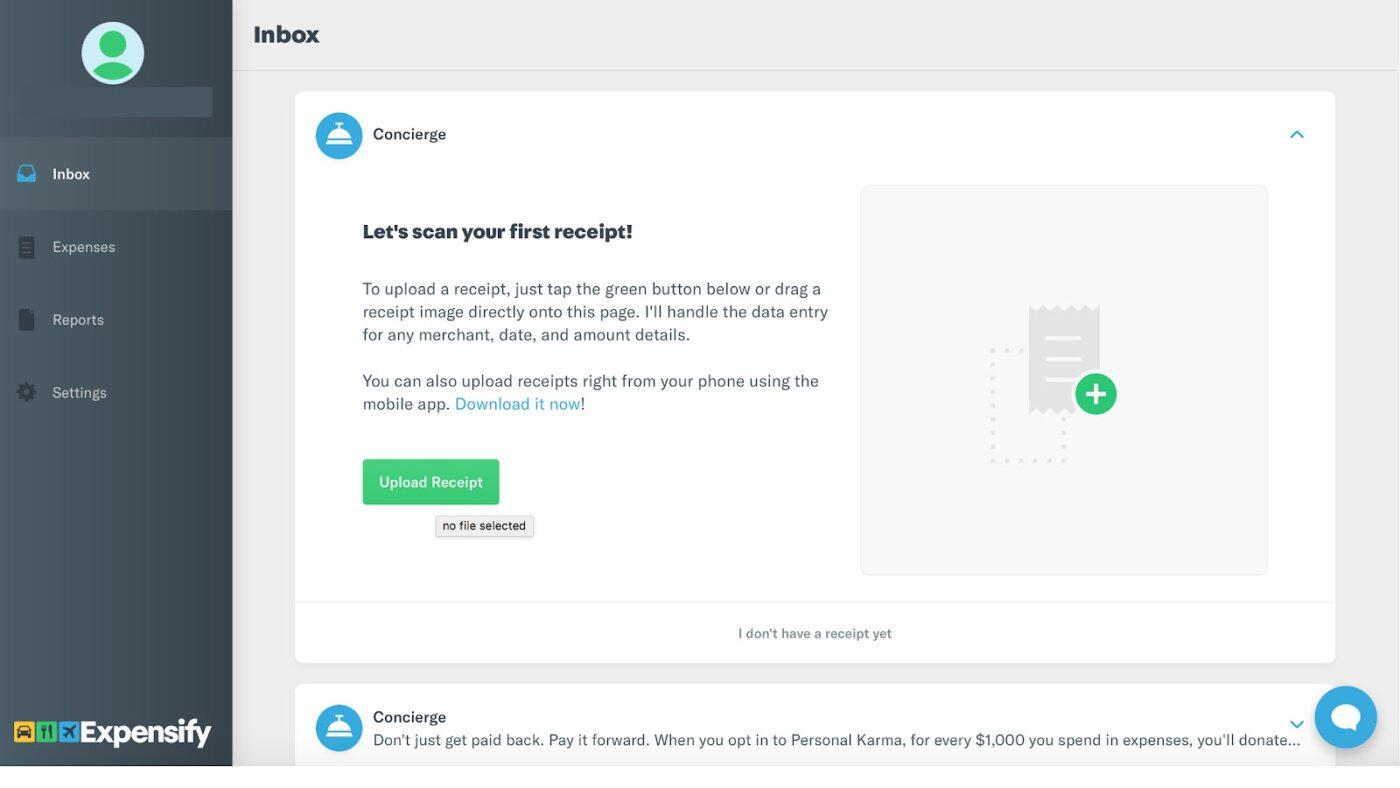
via Expensify
Expensify makes expense reporting almost painless. This app recognized that nobody wants to sort through receipts at the end of the month, so it flipped the process entirely. Instead of batching everything together, you handle expenses as they happen.
The magic happens when your manager can approve expenses while waiting for lunch, and reimbursements appear in your account without anyone touching a spreadsheet or chasing down signatures.
One Redditor writes:
Been using Expensify for a couple years now and it’s honestly been a game changer for my small business. The receipt scanning is super accurate, and I love that I can handle reimbursements, expenses, and even company cards all in one place. It’s not perfect (what software is?), but it saves me a ton of time and headaches. Definitely worth checking out if you’re tired of manual expense tracking.

via BambooHR
BambooHR’s small business app puts your team’s info right where you want it. Pull up contact details, time-off requests, and more in seconds. Everything’s organized, easy to find, and ready when you are.
Here’s what makes it work. New hires can ease into their onboarding without feeling rushed or overwhelmed. Managers get friendly nudges about birthdays, anniversaries, and review dates (because let’s face it, we all forget sometimes). And when someone needs to check their PTO balance or update their emergency contact? They just do it. No forms to fill out, no waiting around for someone to get back to them.
From a Reddit post:
Bamboo has one of the most complete feature sets (maybe the most complete), especially if you’re prioritizing compliance and reporting. Their PTO tracking and onboarding tools are solid, and they have payroll built in. It’s pretty awesome and comprehensive… the price is ultimately what killed the deal for us…it was the priciest quote we got.
🧠 Fun Fact: In 1946, after World War II, returning U.S. veterans started thousands of small businesses using the GI Bill. This led to one of the largest entrepreneurial booms in American history and reshaped Main Street economies.
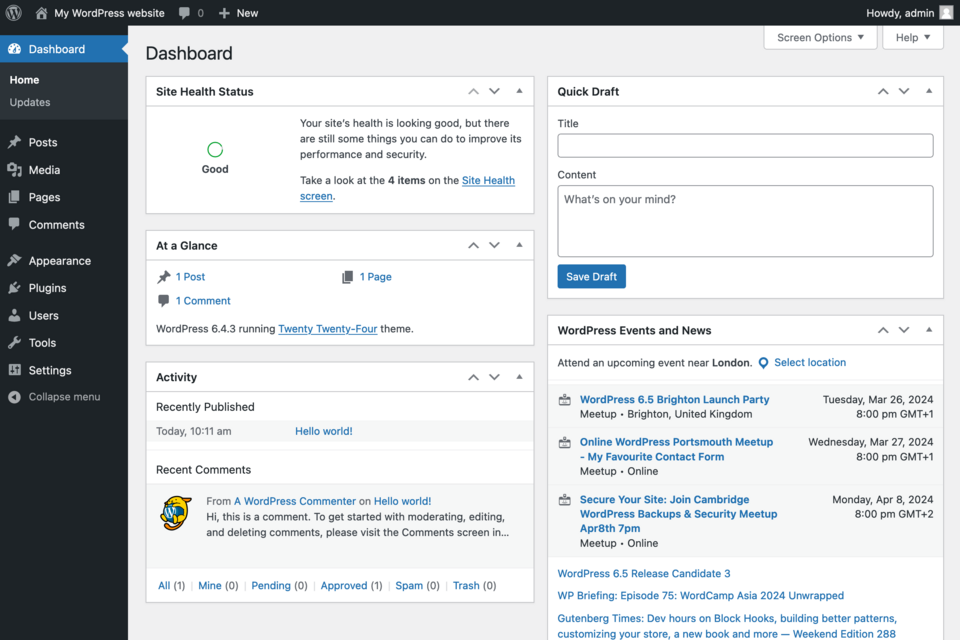
via WordPress
WordPress powers the majority of websites because it’s flexible enough for anything: blogs, storefronts, membership sites, or full-scale business platforms.
This platform gives you complete control over your website’s appearance and functionality without locking you into rigid templates. What started as a blogging platform evolved into a complete website solution that can handle everything from simple business sites to complex e-commerce stores.
There’s a learning curve, but the payoff is a website that grows with your business rather than limiting it.
Someone on Reddit shares:
The amount of support for plugins and themes, to developers and the community, is enough for me to keep using WordPress. The interface is also very easy to use and navigate even for beginners.

via Wix
Wix appeals to people who think visually and want to see exactly how their website will look while they’re building it. The drag-and-drop interface feels natural; you position elements exactly where you want them, adjust colors and fonts in real time, and preview everything instantly.
This small business app has also removed the technical barriers that traditionally made website creation intimidating for non-developers.
A G2 review highlights:
It’s become a fully-integrated marketing platform (lite version)… so if you need bare minimum CRM, email marketing, shopping cart, etc. with a no-code website builder it’s not a bad place to start and their template library is pretty good. But that is also why it’s not a great platform if you think your business will grow – none of the tools are as robust as something else – sort of a jack-of-all-trades platform that’s not great at any of it but can be an okay entry point.
🔍 Did You Know? Most small businesses with employees have a team of around 12 people—small but mighty.
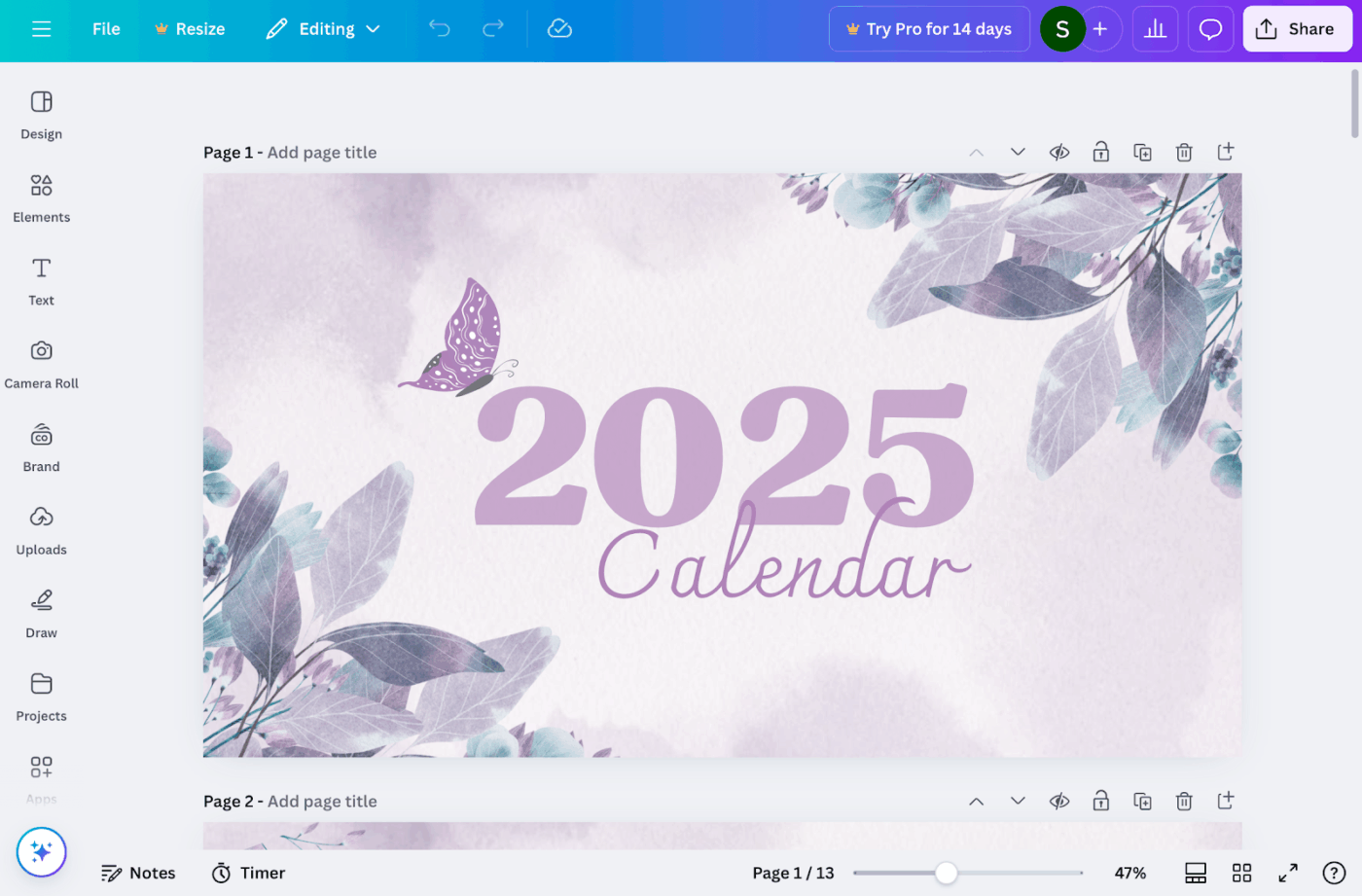
via Canva
Graphic design used to require expensive software and years of training. Canva has changed that equation by making professional-quality design accessible to anyone with an internet connection.
Their marketing tools are perfect for anyone to create professional-looking graphics in minutes. Need a social media post? A flyer? A presentation? Just pick a design project management template and make it yours. What makes Canva special is how it balances simplicity with professional results. You can create something that looks polished without spending hours on it.
As shared on Reddit:
Canva is a great tool for professionals and non-professionals alike. I can turn to it if someone says “hey I need an animated ad within the next ten minutes”, and if someone comes to me with a job so small or simple that it’s not worth my time, like a business card or a wedding invite, I can just point them to Canva and go on my merry way. It’s like a self-checkout aisle for design.

via Sortly
Inventory management doesn’t have to involve endless spreadsheets and barcode scanners. Sortly uses photos to help you see what you have and where it’s located, which makes more sense than trying to remember cryptic product codes.
The AI tool for startups appeals to visual learners who prefer seeing their inventory rather than reading about it. You can organize items however makes sense for your business, whether that’s by location, category, or project.
On Capterra, a user wrote:
Sortly has assisted us in many ways, including minimizing costs, reducing time needed to manage our inventory, giving us the ability to quickly view our current inventory status, and greatly reducing paperwork.
💡 Pro Tip: Make feedback part of your tool stack. Once a month, ask your team: ‘Which app is annoying you most right now?’ One tweak or swap can unblock hours of hidden friction.

via Google Analytics
Your website might be getting visitors, but Google Analytics tells you the story behind those numbers. It goes beyond simple visitor counts to reveal how people use your website.
You can see which pages keep people engaged, which ones make them leave immediately, and what path they take through your site. The real value comes from understanding visitor behavior patterns that help you make smarter decisions about content, design, and marketing investments.
Someone on G2 shares:
It’s like having x-ray vision into what’s happening on your site. I love how detailed the data is. You can really dig into what’s working and what’s not. The real-time view is especially cool when you’re launching something new and want to see traffic come in live. […] The learning curve is real. It’s not the most intuitive tool if you’re just starting out, and the interface can feel overwhelming at first. I also wish the dashboards were a little more customisable without needing to go down a rabbit hole of settings or third-party tools.
🔍 Did You Know? According to the U.S. Chamber of Commerce, 95% of small businesses use at least one tech platform to keep things running smoothly.
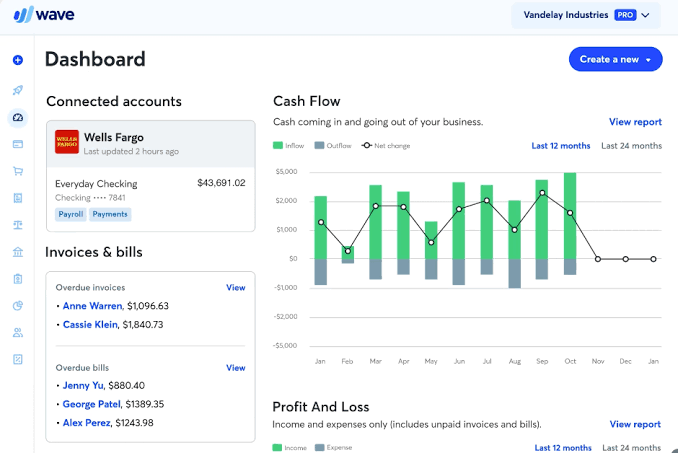
via Wave
Wave makes the money side of running a business way less stressful and, dare we say, kind of satisfying? Send off polished invoices, link your bank account to track what’s coming and going, and see where your cash stands without clicking through 15 tabs.
It also organizes your expenses for easy sorting and generates basic reports like profit and loss, sales tax, and account balances.
From a Reddit discussion:
It’s far better than most of the alternatives I tried for my small business. I needed inventory, services, and parts management and this was one of the few tools that does that. I miss it being free but the $20 a month or whatever it is I pay is totally worth it
📖 Also Read: How to Find a Business Mentor for Entrepreneurs

via Hootsuite
Hootsuite’s marketing app for small businesses helps you stay ahead of the conversation with real-time social listening across 150+ million sources, including blogs, forums, and podcasts. Spot brand mentions, track sentiment, and filter the noise with AI-powered tags and custom alerts, so you only get what’s relevant.
When it’s time to post, you can bulk schedule content, preview everything in a visual calendar, and publish across Instagram, LinkedIn, TikTok, and more.
A review from Reddit reads:
As a Communications Manager, I use Hootsuite every day. We can manage several social media accounts at once, schedule a lot of posts, track metrics and it’s very intuitive. However, I find it has a few drawbacks such as the fact that you can’t upload PDF or tag individuals. But it’s a great tool!
🧠 Fun Fact: Zara began as a small clothing store in Spain called Zorba. When the owner realized there was a bar nearby with the same name, he scrambled a few letters and renamed it Zara. That rebrand helped launch one of the world’s most agile fashion empires.
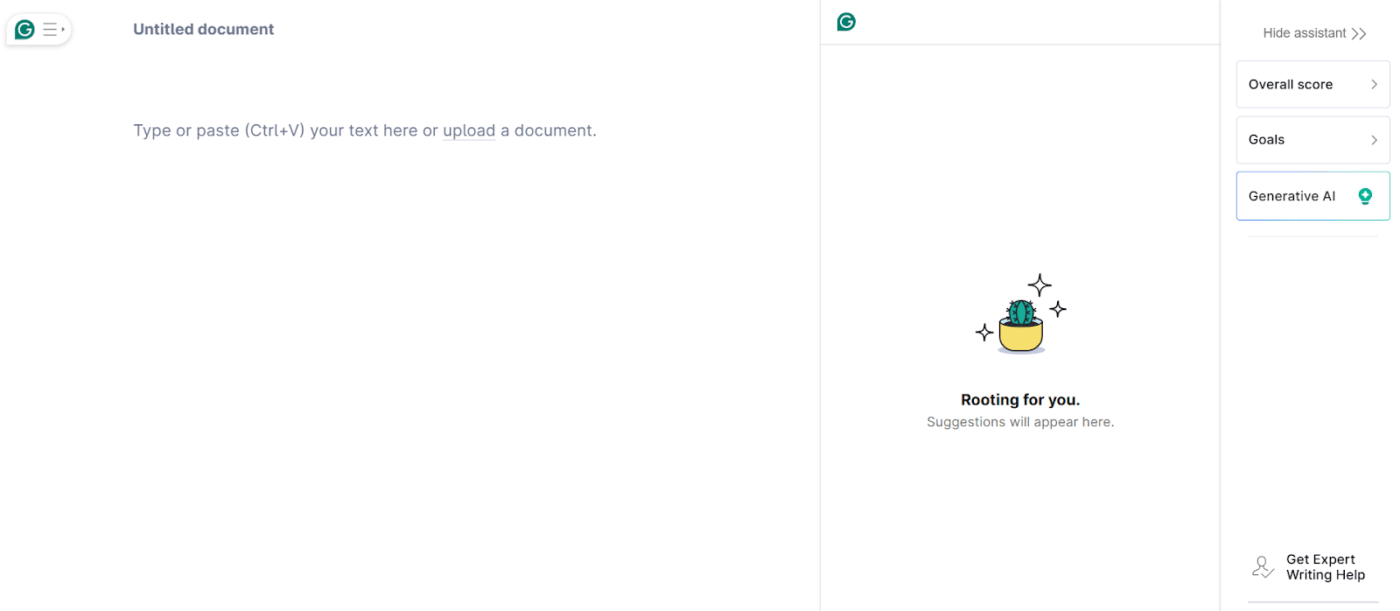
via Grammarly
Running a small business means writing a lot—emails, proposals, social posts, team updates. Grammarly Business helps you sound sharp every time. It spots awkward phrasing, grammar slips, and inconsistent tone before you hit send, so you don’t have to slow down to double-check everything.
It’s also reliable for building stronger writing habits across your team. The suggestions are easy to follow and useful. Your brand voice stays consistent, communication gets clearer, and everything feels a little more professional without extra effort.
Based on a Capterra review:
I love that you can customize the writing tool to the extent that you can set your company’s writing standards, giving your communications a more professional tone. […] Grammarly Business is very versatile, integrating with widely used software such as Gmail, web browsers, Microsoft Office, and more. Using this tool is both a lifesaver and a time saver—it edits, proofreads, and reduces the effort and time you would spend reviewing. […] I wish Grammarly Business would focus more on supporting multiple languages, transforming it into a truly nationwide writing tool.
💡 Pro Tip: Pick small business apps that grow with you. Look for flexible pricing, upgrade paths, and features that support your next stage. You don’t want to rebuild your systems every time you add a new hire or service.
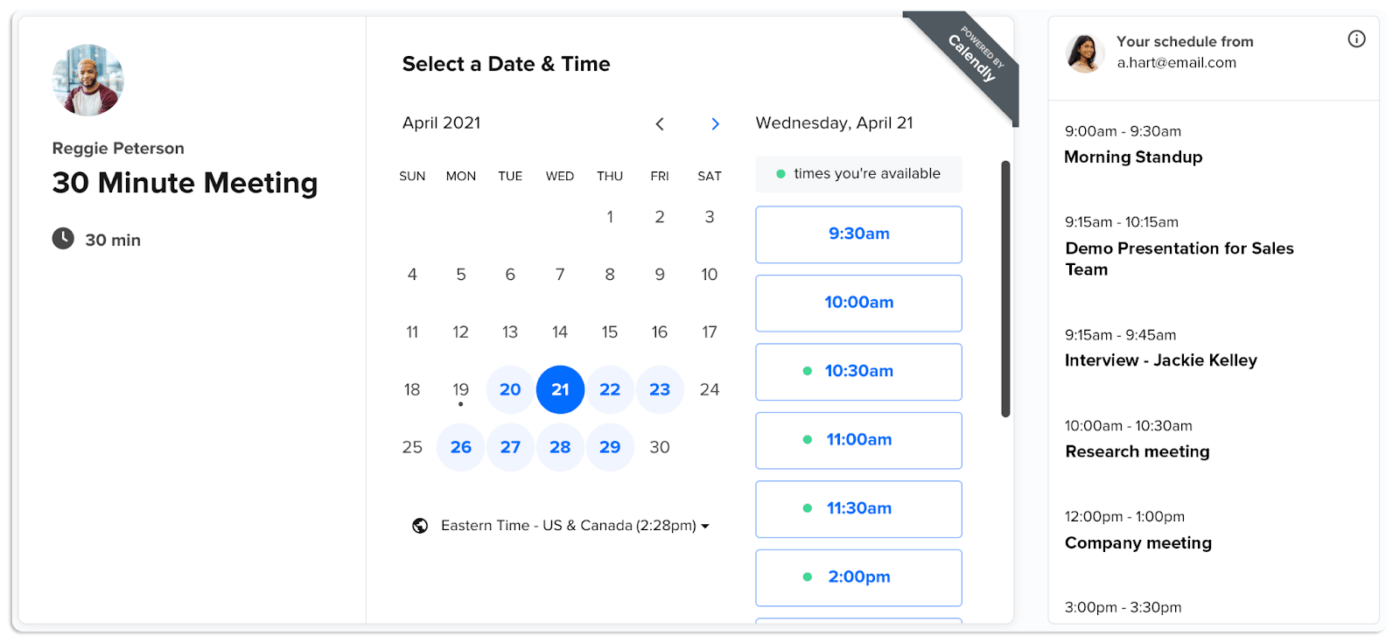
via Calendly
Scheduling shouldn’t take five emails and a calendar check. Calendly makes it easy for people to see when you’re free and book a time that works for both of you.
It also takes care of the boring stuff like confirmations, reminders, and calendar updates. You stay in control of your schedule without needing to manage every step. All that’s left is to show up prepared.
A G2 review about this small business app says:
Calendly has seriously streamlined our scheduling process. It’s awesome for letting users, clients, and prospects book calls with us for everything from software demos to tech support, training, and quick catch-ups…The event type setup can be a bit of a headache – it’s not always super intuitive. And sometimes, it feels like settings change without any heads-up, which can be pretty confusing when we suddenly run into unexpected changes.
🔍 Did You Know? More than 50% of small business owners say they’re working longer hours now than they did last year.
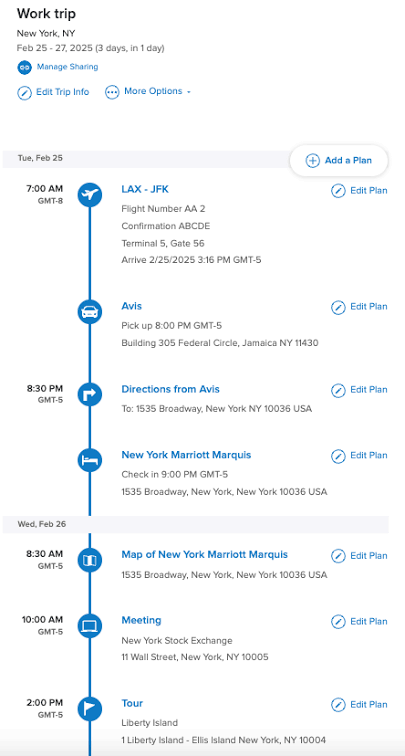
via TripIt
Business travel involves managing multiple bookings, confirmations, and itineraries, making TripIt essential for frequent travelers. This app automatically creates organized itineraries from emailed confirmations for flights, hotels, and rental cars.
The small business app provides real-time flight updates, gate changes, and delay notifications. TripIt also tracks loyalty program points, expense categories, and travel patterns. It works offline, ensuring access to important travel information even in areas with limited connectivity.
Hear it from this Reddit user:
Used Tripit for years and it is a great place to forward your booking confirmations and the like to. I love to have all my travel information stored in one place. If you are looking for something, there is only one place you have to go to. And you can take a look at your whole itinery and see, if you maybe missed to book a hotel for one stop (that is especially useful the longer you travel).
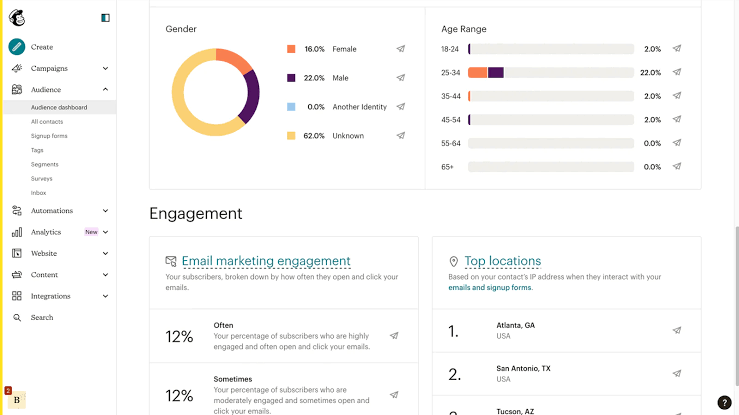
via Mailchimp
Email marketing remains one of the most effective ways to reach customers, and Mailchimp makes campaign creation accessible to businesses of all sizes.
This app offers drag-and-drop email builders, small business templates, and automation workflows. Mailchimp also provides detailed analytics about open rates, click-through rates, and conversion tracking.
A G2 review puts it this way:
Mailchimp provides a powerful set of features with their email platform that works seamlessly with their other online marketing products such as websites. Fairly easy to use with great support via email.
🔍 Did You Know? 73% of Gen Z and 75% of Millennials say they’d be more likely to shop at small businesses if the experience was as convenient as shopping at major retail chains.
The best small business apps don’t pile on features for the sake of it. They make work easier, help teams stay focused, and replace the constant context switching.
ClickUp does exactly that.
You can plan projects, chat with your team, draft content in Docs (with a little help from AI), and even track time without leaving the platform. Need to follow up with a lead? Set up a quick CRM view. Want to skip the repetitive stuff? Automations have your back.
It’s everything you need, minus the chaos. 🌪️
Why wait? Sign up for ClickUp today! ✅
© 2026 ClickUp